Coronavirus lockdown: Am I allowed to move house?
- Published
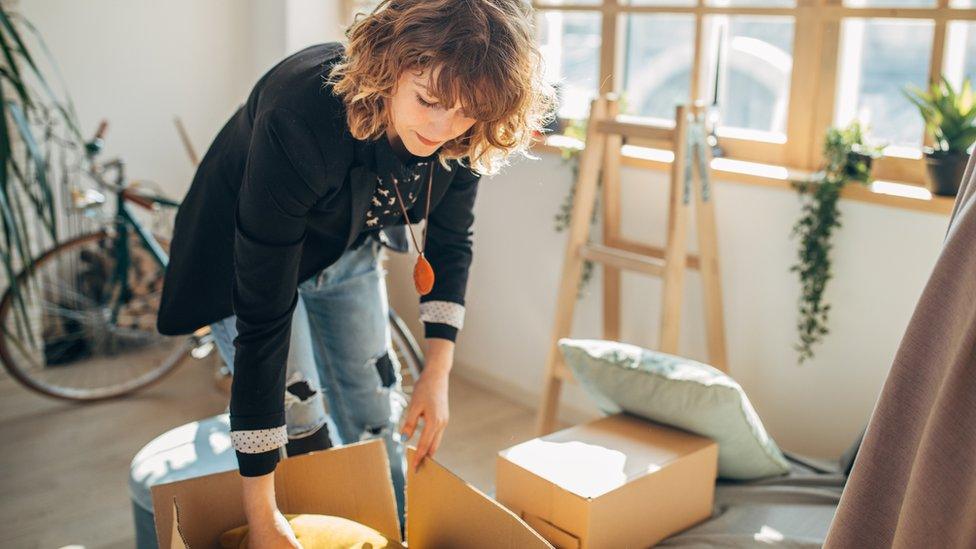
England's property market has been released from some elements of the lockdown.
Many in the housing sector anticipate a surge in moving from pent-up demand. However, strict guidelines are still in place covering every aspect of buying, selling, and renting.
For now, the property markets in Wales, Scotland and Northern Ireland remain shut.
But if you're moving house in England, what do the changes mean for you in practice?
How will socially distanced property viewings work?
The first property viewing will not be in person, but online. Virtual viewings have become more common recently and will continue, while open house viewings will not return for a while.
When prospective buyers and tenants want to inspect a property in real life, government guidance, external states only one household should be shown around at a time.
Internal doors should stay open, or door handles wiped down along with other surfaces after each visit. Washing facilities should be offered, towels washed, and visitors could bring their own hand sanitiser.
Current residents are encouraged to leave the home while a viewing is taking place.
If anyone involved - including the current residents - are symptomatic, self-isolating, or shielding, then it should not take place, the guidance says.
An estate or letting agent should no longer drive anyone to a property, and must stay 2m (6ft) away from clients during the viewing.
Can my landlord evict me now?
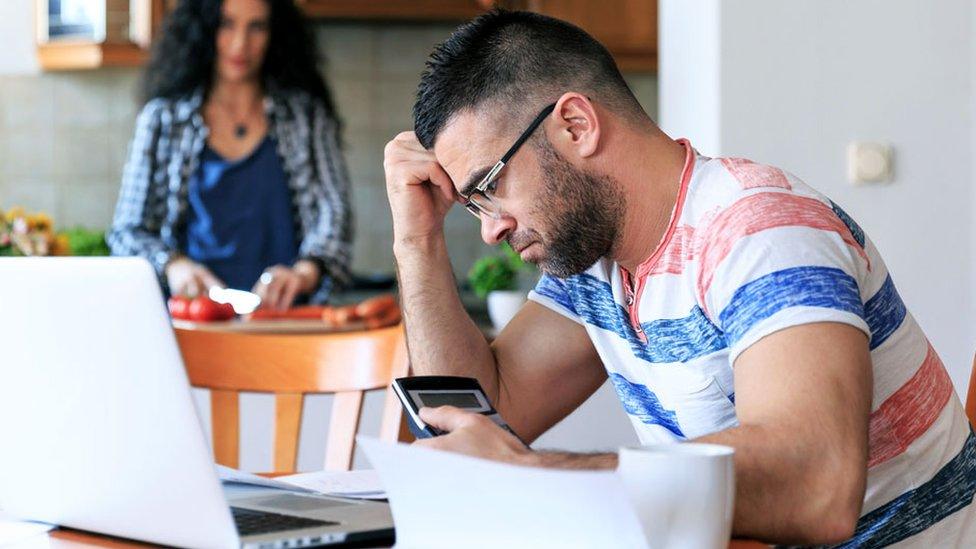
Protections for tenants were put in place when general restrictions on movement were introduced.
Ongoing evictions have been suspended, and there has been a temporary ban on new eviction proceedings.
So, until 30 September, most landlords will not be able to start eviction proceedings unless they have given tenants three months' notice.
Those rules still stand, even though landlords can now start showing prospective tenants around again.
Social landlords and housing associations have been told to make sure tenants are not put under undue pressure to move. Policies on returning keys, inspections, and tenancy sign-ups also need to be updated so they meet social distancing requirements.
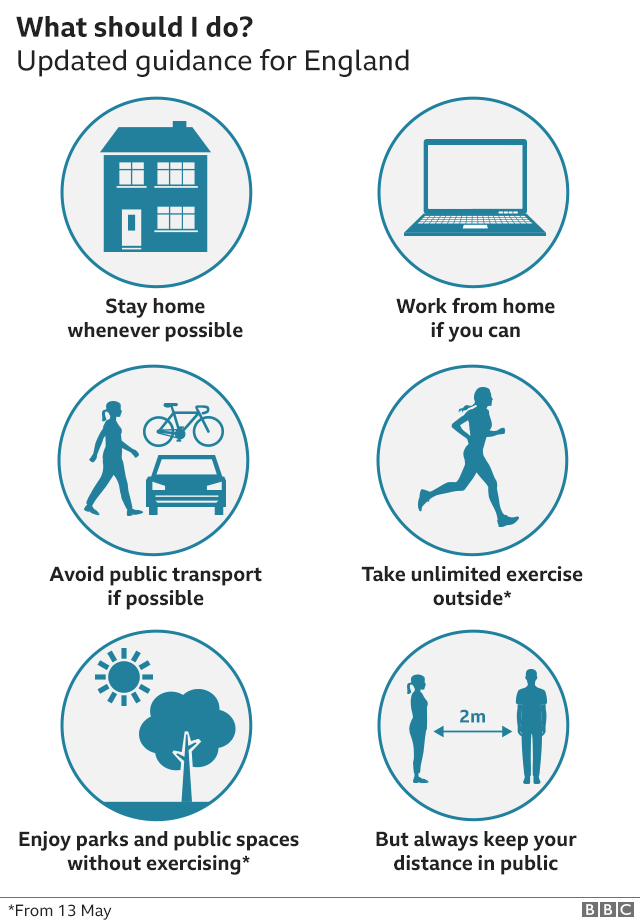
Can I move in with someone new?
Many people would be planning to move in with a partner, or rent a home with new housemates, who are currently in different households.
Clearly, that means members of two households getting together, but the government says it is permitted.
The important caveat is that it should be delayed if anyone in either household is showing symptoms. Any period of self-isolation should also be completed by the last member of either original household before people move in together, or join a houseshare.
Will I have to move my own belongings?
No. Removals firms will now be allowed to operate more widely, but with some restrictions.
People should clean their belongings before asking movers and packers to handle them.
They should also keep their doors open, and offer washing facilities to the removals team but should not offer any refreshments.
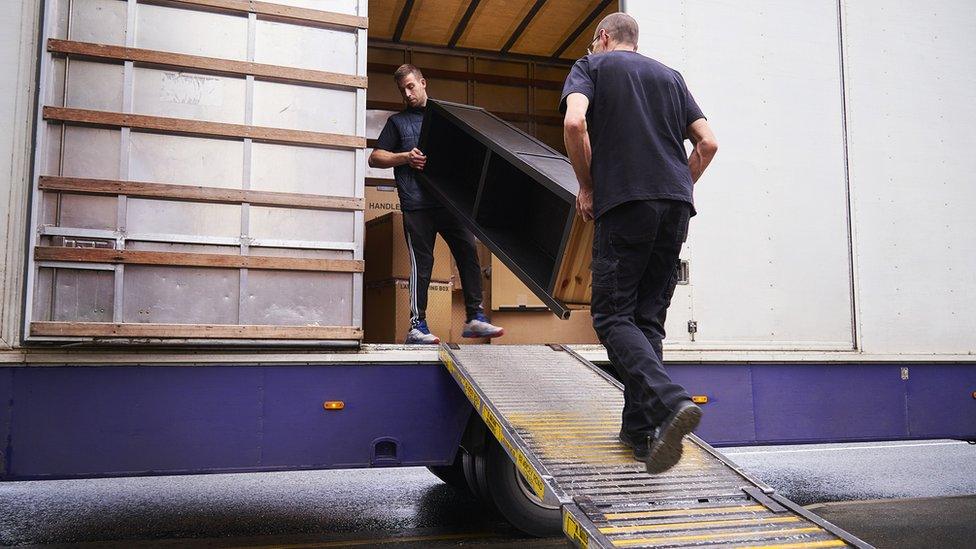
Removal teams will be encouraged to operate a ''buddy'' system
Any removal workers with even the mildest symptoms should not work, while if someone in the home is symptomatic the move should be delayed.
Removal staff should also operate a ''buddy'' system, so the same pairs carry bulky furniture or equipment each time.
As before, there is always the option of moving your belongings yourself.
Buyers often send in surveyors, builders and other experts to inspect a property before making an offer. They will have to practise social distancing as well.

THE R NUMBER: What it means and why it matters
AIR TRAVELLERS: The new quarantine rules
LOOK-UP TOOL: How many cases in your area?
RECOVERY: How long does it take to get better?

What will this mean for house prices?
As always, that is a very difficult question to answer, and it is likely to vary depending on the area and its local economy.
Many commentators expect prices to fall sharply in the short-term, but recover fairly quickly.
It is clear many people face an uncertain outlook for their jobs and income, particularly first-time buyers.
This is likely to lead to more haggling over house prices, and the possibility of lower demand from potential buyers in the medium term until they are sure their jobs are safe.
Uncertainty tends to make prices more volatile, but it makes predictions trickier too.
Future movements of rents are also difficult to read at the moment, and will depend on the area, the type of property, and the financial situation of the landlord.
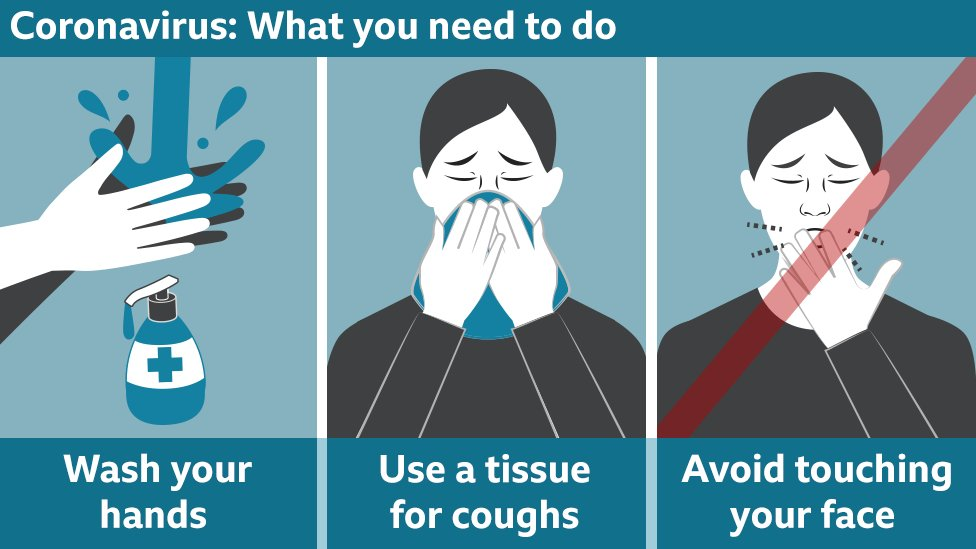
- Published13 May 2020
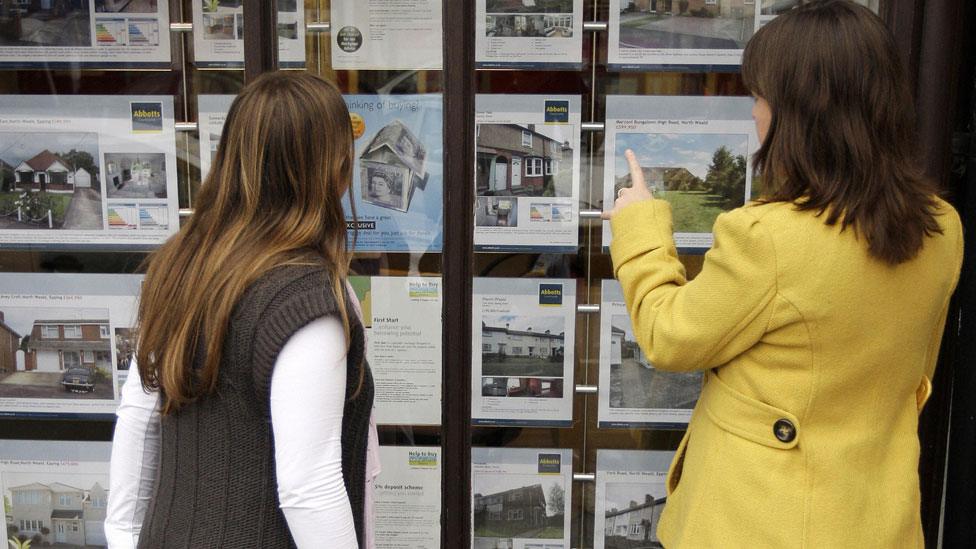
- Published23 April 2020
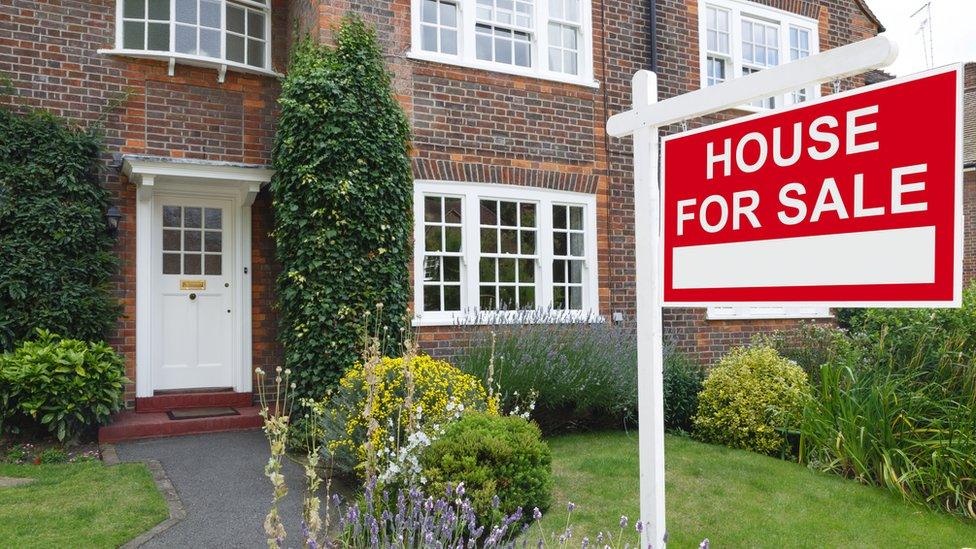
- Published28 April 2020
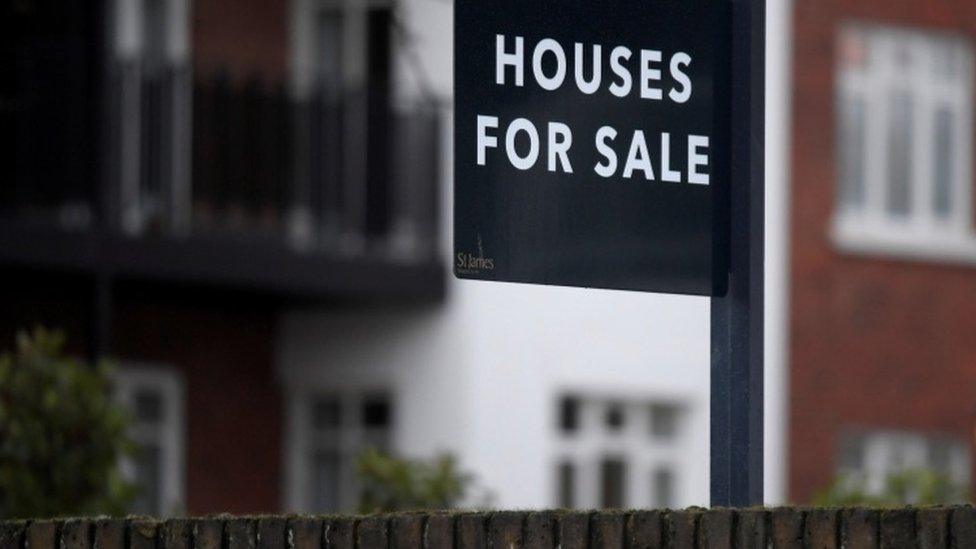
 translator
translator